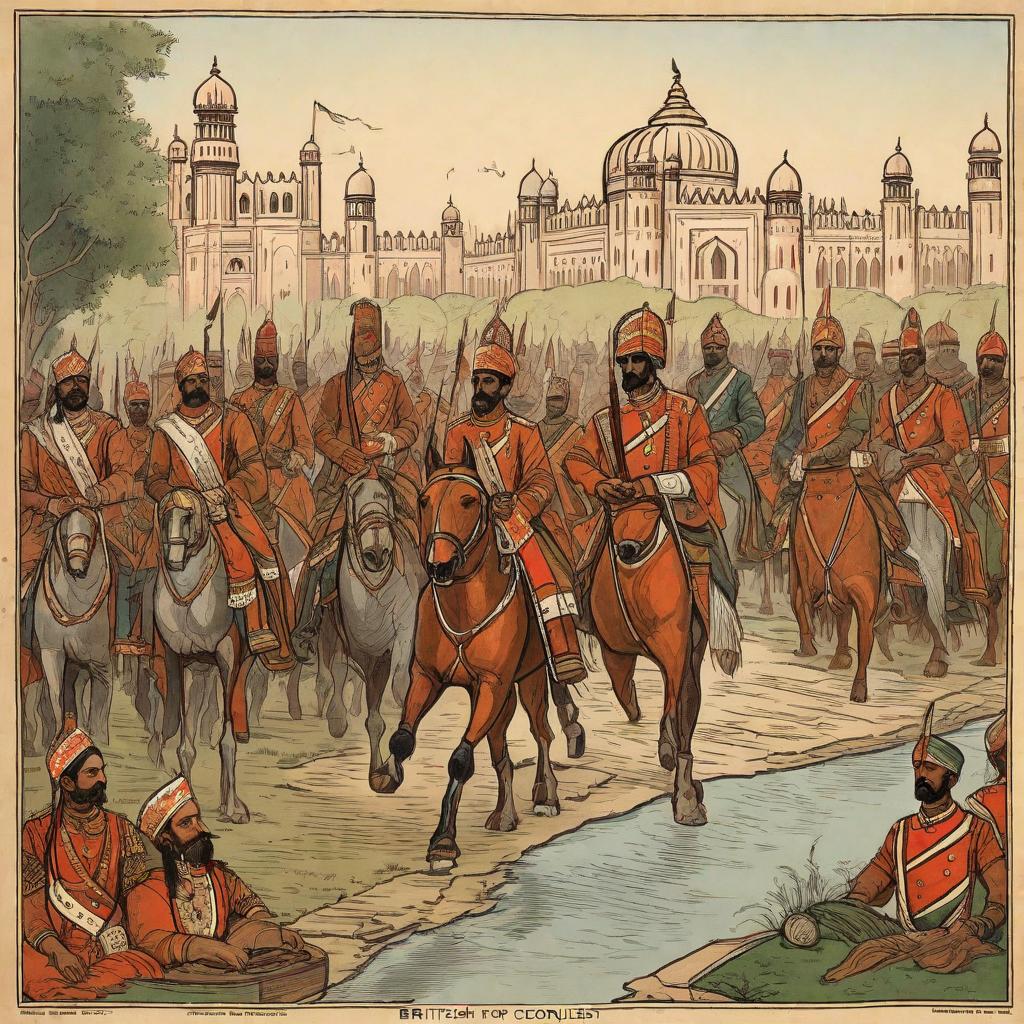Hello friends welcome to Sonu live ,in this article I’m going to tell you about British Policies Of Conquest In India
The British Conquest of India: Strategies and Consequences
A Gradual Process
The British conquest of India was not a swift, single-pronged event but rather a gradual process achieved through a combination of military might, diplomacy, and exploitation of internal divisions.
Military Power
The British employed advanced technology and tactics, exploited disunity among Indian kingdoms, and established a formidable sepoy army to strengthen their military presence.
Superior Technology and Tactics: Leveraging advanced firearms and military training, the British gained a significant advantage over Indian armies.
Exploiting Disunity: Fragmented rivalries among Indian kingdoms were skillfully exploited by the British, who formed alliances to weaken and conquer.
Sepoy Army: The British East India Company raised a formidable army of Indian soldiers, known as sepoys, trained in European techniques, enhancing their military strength within India.
Political Maneuvering
British political strategies aimed to assert control through diplomatic agreements, annexations, and fostering internal discord.
Subsidiary Alliance: By offering military protection in exchange for control over foreign affairs, the British weakened Indian rulers and expanded their influence.
Doctrine of Lapse: This policy, initiated by Lord Dalhousie, targeted states without natural heirs, leading to further annexations and British expansion.
Divide and Rule: The British deliberately fueled discord among religious and regional communities to maintain control and prevent unified opposition.
Economic Exploitation
British economic policies focused on extracting resources and wealth from India to benefit British interests.
Mercantilism: India served as a source of raw materials and a market for British goods, with trade policies favoring British interests.
Revenue Exploitation: Harsh taxation systems drained Indian resources, financing British endeavors at the expense of Indian welfare.
Social and Cultural Interference
British efforts to undermine Indian traditions and promote Westernization contributed to social upheaval and cultural erosion.
Undermining Indian Traditions: British denigration of Indian customs and religions fostered resentment and cultural discord.
Westernization: British education systems aimed to create an Indian elite loyal to British interests, promoting English language and European thought.
Consequences
The British conquest led to the dismantling of Indian political structures, wealth depletion, decline of industries. And deep social divisions, laying the groundwork for Indian nationalism and independence struggles.
Conclusion
The British conquest of India, characterized by exploitative policies and long-term consequences, ultimately shaped the trajectory of Indian history. Despite the costs endured by the Indian populace, it also contributed to the emergence of a unified, modern India.
Would you like to delve deeper into any specific aspect of British policy or its impact on India?
Read More-https://sonulive.in/factors-for-many-empires-shaking-battles-fought-in-panipat/

